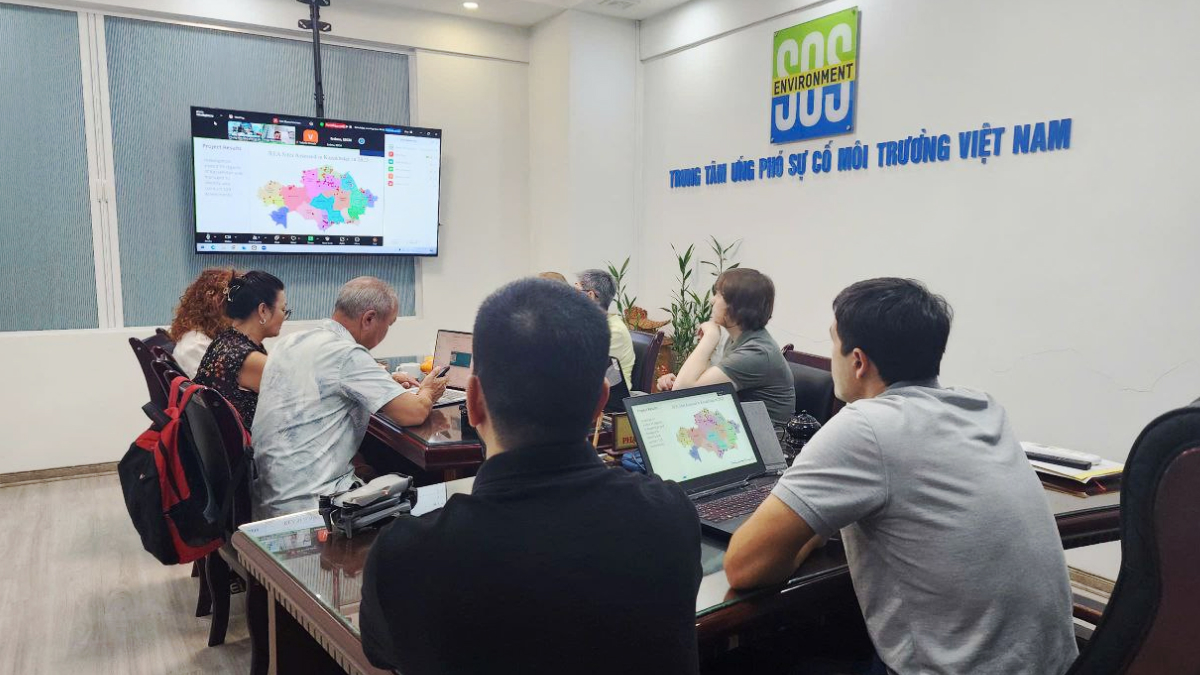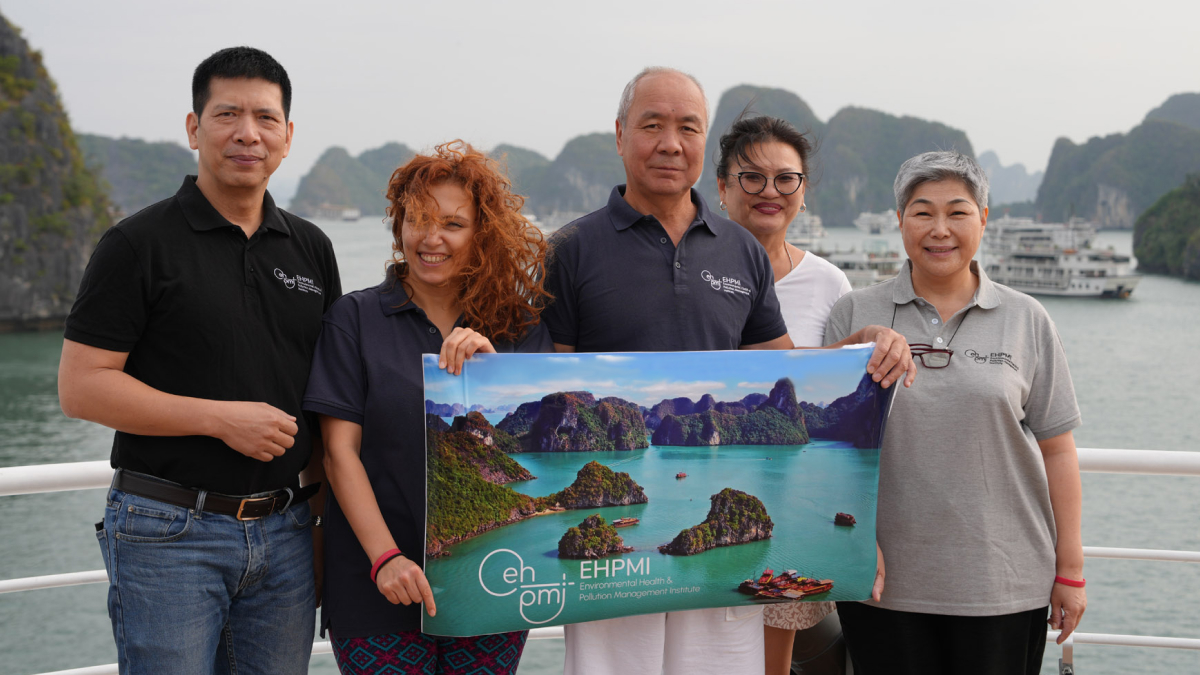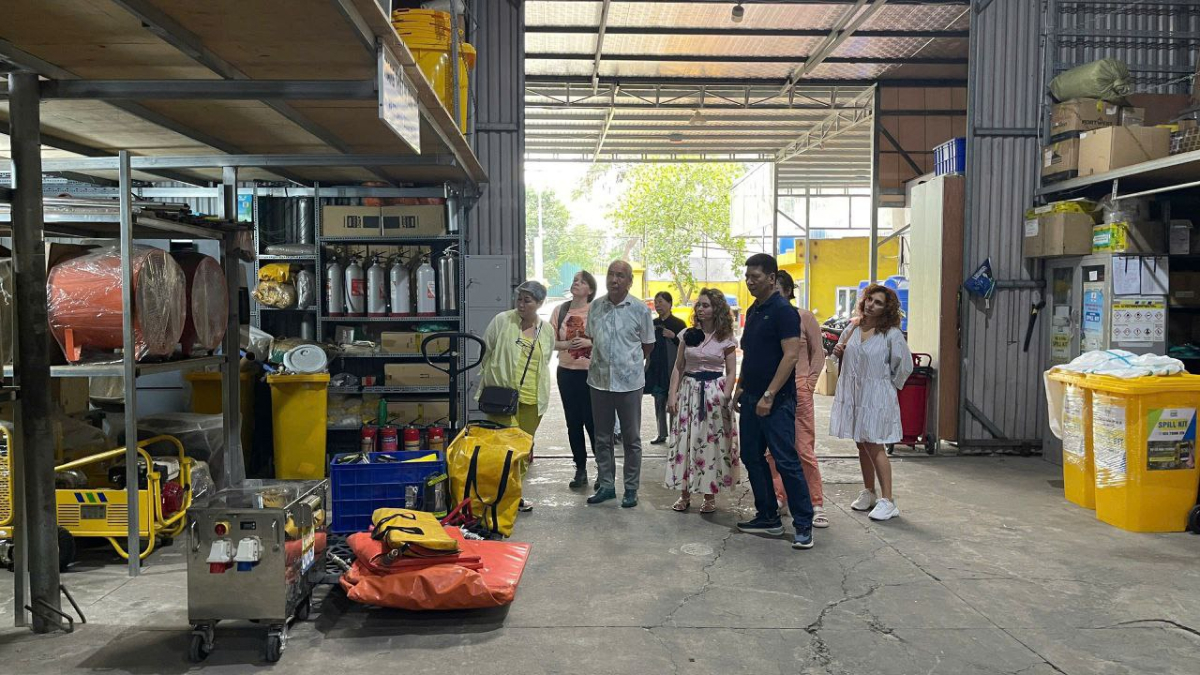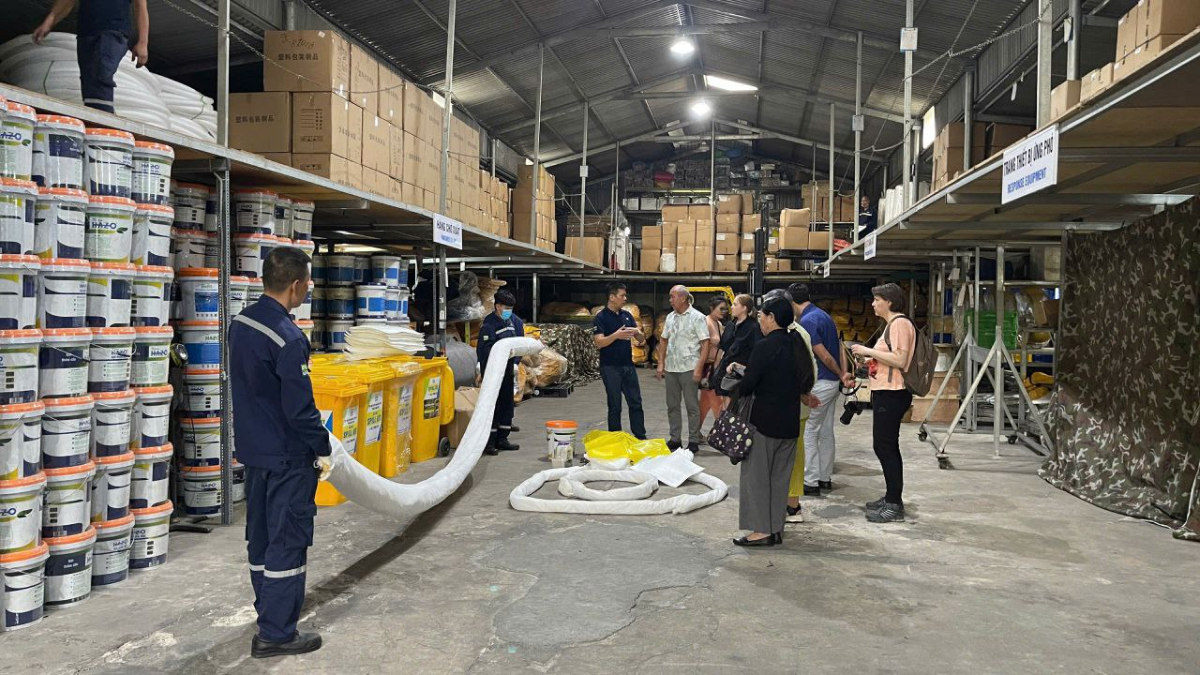EHPMI Workshop-2024
On November 24 EHPMI held the annual workshop in Hanoi, Vietnam. The purpose of the annual workshop was to review the progress made by EHPMI in 2024, exchange experience and make plans for future work. The workshop was held in in SOS headquarters and had a hybrid format when some members were present in person…


The workshop started with ESCM presentation about implementation of the project “Sustainable Plastic Recycling in Mongolia” together with Caritas Czech Republic, Ecosoum and Mongolian Sustainable Development Bridge. The project started in September 2020 and will be completed in December 2024. This project is an important step for Mongolia to solve the problem of increasing plastic wastes. The lessons of this project on sorting wastes, standards for industry and waste management in tourism sector could be used and replicated in other countries of the region.
Human Health Institute presented the work in Kazakhstan. One of the biggest achievements was the national inventory of sites contaminated with obsolete pesticides implemented as part of the FAO project “Lifecycle Management of Pesticides and Disposal of POPs Pesticides in Central Asian countries and Türkiye” funded by GEF. The project team visited 15 regions of Kazakhstan and managed to identify and conduct 159 assessments of pesticide contaminated sites according to REA protocol. The results of the inventory will be used to prioritize sites for conducting detailed assessments, planning and implementing cleanup (remediation) projects.
Ekois presented the work in Kyrgyzstan on two projects: «Strengthening Health Systems to Reduce Lead Exposure» implemented by Pure Earth and funded by Takeda, “Demonstration of Non-thermal Treatment of DDT Wastes in Central Asia” implemented by UNEP, funded by GEF. The first project introduces changes to the national health systems to initiate and maintain monitoring of exposure of children to lead and investigate sources of exposure to identify mitigation measures. In the second project Ekois did a lot of work on education and awareness about health risks of DDT and other obsolete pesticides in Kyrgyzstan.
In Georgia EHPMI will start a new activity as part of the project “Regions and People for Food Safety: An EU-Endorsed Awareness Initiative”, funded by Caritas Czech Republic. The project will focus on education, awareness and food safety.
In Tajikistan EHPMI collaborated with Peshsaf on several projects: “Lifecycle Management of Pesticides and Disposal of POPs Pesticides in Central Asian countries and Türkiye” implemented by FAO, funded by GEF; “Demonstration of Non-thermal Treatment of DDT Wastes in Central Asia” implemented by UNEP, funded by GEF; and “Agricultural Development Support at the Communities Level,” implemented by IFAD, funded by Green Climate Fund (GCF). Tajikistan team presented the progress in these projects and described the potential for expanding collaboration with FAO and UNEP in 2025.
As representatives of Armenia and Azerbaijan reported there were no significant projects in those countries, because it was not possible to obtain support for planned actions.
The workshop was concluded by a big presentation of Pham Van Son, head of SOS about the work of the organization in Vietnam to address spills of petroleum products and the project on agricultural open burning and pesticides implemented by GAHP-VACNE and funded by UKAID. Besides the presentation the workshop participants also visited SOS response station in Hanoi and saw various oil spill response techniques and equipment used by SOS.


